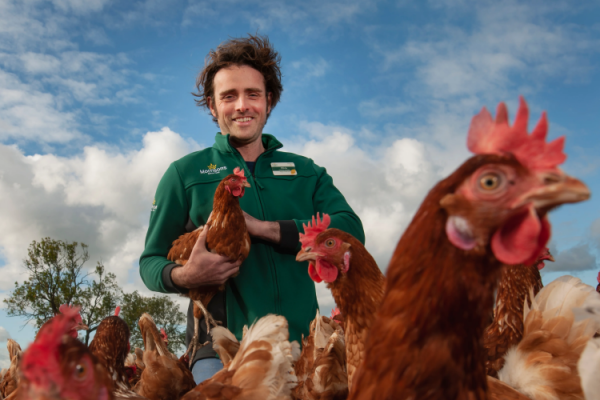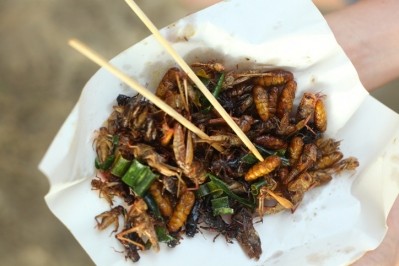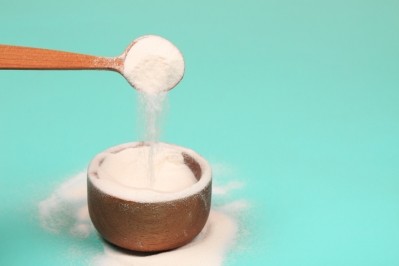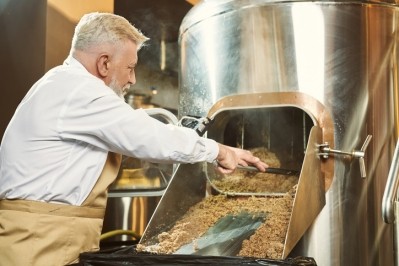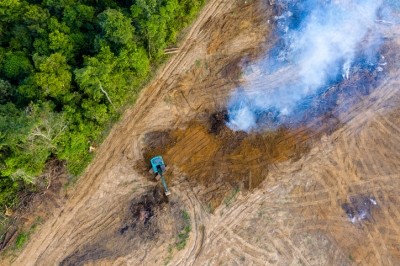Better Origin’s AI-powered insect mini-farms are localising the food chain for protein sustainability and security
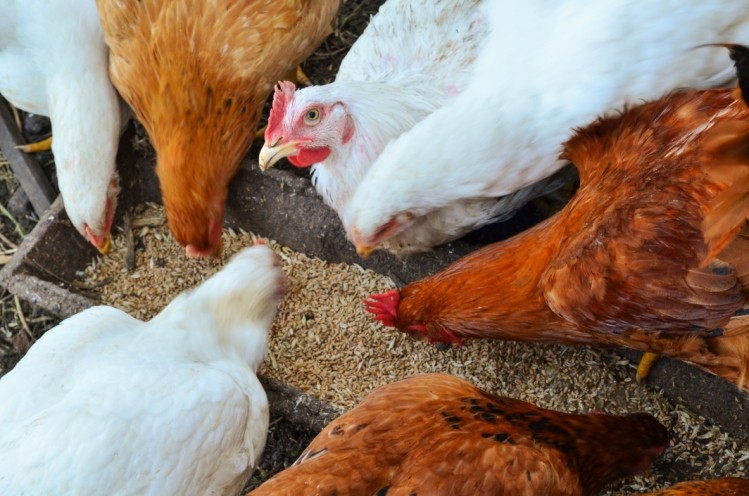
UK-based Better Origin has developed what it believes will be a solution to one of the biggest problems facing the world today: How to meet the protein needs of a growing global population within planetary boundaries. The answer, according to the ag tech innovator, is to decentralise the food chain, moving from a global to a local approach.
A circular model for animal feed
To achieve this, the company has created AI-powered insect ‘mini-farms’ that take local food waste from supermarkets and convert it into high-quality, sustainable animal feed.
Its container insect farms recreate the conditions ‘found in nature’ where food is eaten by insects and upcycled into essential nutrients for animal feed. Using AI and automation to create the optimal environment for this cycle to flourish, Better Origin produces black soldier fly larvae which can be fed to the farm’s animals. The system is designed to be hyperlocal, automated, and easily installed on local farms. Cameras, computer vision and sensors monitor the conditions within each mini-farm to make sure they are optimal for production.
Better Origin believes this approach can remove the need to ship animal feed around the world – and indeed reduce demand for commodities like soy that are some of the largest drivers of deforestation and land-use change. The Better Origin container farm – called the X1 – can produce the same amount of feed currently produced on 1500sqm of soy plantations, in 1sqm of land.
One-third of the food produced today is wasted. In the UK alone we waste 4.5 million tonnes of food and if food waste was a country it would be the world's third largest carbon emitter behind only the USA and China. By leveraging food waste as a raw material, Better Origin is increasing efficiency in the food system and cutting farmers’ feed costs.
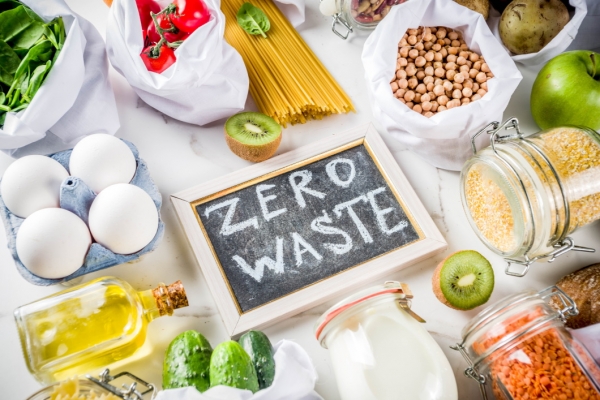
This circular model will help reduce the environmental impact of animal agriculture by lowering on-farm emissions and boosting productivity, Better Origin CEO Fortis Fotiadis told FoodNavigator.
“We recognise that the current way of producing food, especially protein, is unsustainable. We’re aligned with the push to reduce waste and emissions and the need for less and better meat. However, unlike innovations such as lab meat, we fit right within the food chain’s current state – and we make it better and more circular.
“The Better Origin way is about using local food waste as the input and carbon neutral protein locally as the output is a new way of thinking that tackles both sustainability and nutrition problems.”
There are animal welfare benefits too, as livestock are allowed to forage for live food rather than being fed pellets.
“Insect larvae are nature’s mechanism to convert waste back into essential nutrients in the food chain. They act as the missing link between waste and food. We reduce waste and increase food production by bringing back this link,” elaborated CSO and co-founder Miha Pipan.
Secure and sustainable food systems
Moving to a local food supply chain and developing food sovereignty has become a hot topic in the face of a list of crises causing global disruption. Fotiadis stressed that localisation does indeed deliver food security benefits but – as the EU moves to increase the amount of land under cultivation to fill feed supply shortfalls and the UK government stands accused of walking blind into a food and feed security crisis – he said that this needs to be achieved in a sustainable fashion.
The food tech entrepreneur suggests a circular approach to feed production can deliver benefits. “One of the biggest challenges our generation will need to face is to be able to produce food in a sustainable and secure manner. Recent events such as the pandemic, Brexit, and the current situation in Ukraine have really exposed the fragility of our food supply chain from a security perspective. The challenge is that security needs to be addressed in conjunction with sustainability as they are both existential threats.
“Much of our food chain’s inefficiency lies in how globalised it is. It is neither secure nor sustainable for the feed eaten by UK chickens to be grown in South America. Better Origin has found a solution in this problem that addresses both of these issues, and that lays in localising the food supply chain.
“We can achieve by turning food waste, which is locally produced and in abundance, into sustainable high-quality food. As this protein is grown right here in England – we tackle both issues of sustainability and security at once.”
Fuelling growth to scale impact
While Better Origin’s tech can be applied across the livestock sector, it is initially launching in poultry production. In December, Better Origin signed a deal to supply ten insect mini-farms to feed chickens at supermarket group Morrisons’ UK free-range egg farms.
Soy currently accounts for 10-20% of hens’ normal diets and up to 70% of the emissions from the UK’s supply chain is attributed to feed. Reducing soya and feeding insects food waste on these 10 farms alone is expected to save 56 hectares of South American land from deforestation every year. It will also reduce CO² emissions by 5,737 tonnes, save 40 billion litres of water annually and mitigate 1,500 tonnes of food waste, according to figures shared by the company. Morrisons said the tie-up would help it launch its own carbon-neutral egg brand this year.
“Reducing soya from livestock feed is one of the key challenges for farms needing to lower their carbon footprint," explained Sophie Throup, Head of Agriculture at Morrisons. "An insect diet could suit our hens better - they seem to enjoy it - and the nutritional and added health benefits are notable. We’re also finding a good home for our fruit and veg waste. We think that this could be part of the future of egg farming.”
In order to support execution of the Morrisons contract as well as future deals, Better Origin is currently expanding its team to prepare for a step-up in growth. To support this, the group raised an additional US$16m in a Series A funding round led by Balderton Capital.
“The money will be used to focus on growing the team to satisfy some recent large contracts we were awarded such as our partnership with Morrisons. We also have plans to scale up our technology throughout the UK and the EU while maintaining our position as leaders in R&D,” Fotiadis told this publication.
Commenting on the investment, General Partner at Balderton Capital Suranga Chandratillake was upbeat on Better Origin’s answer to challenges the food system is currently grappling with. “Climate change, the pandemic, political tensions and our growing population have demonstrated time and again how fragile our current systems are. They’ve also shown how farming currently exacerbates the challenges we face and solutions so far are not leading to the wholesale change we need. Better Origin presents a new approach and we believe it can have a transformational effect on food and farming systems,” Chandratillake said.
